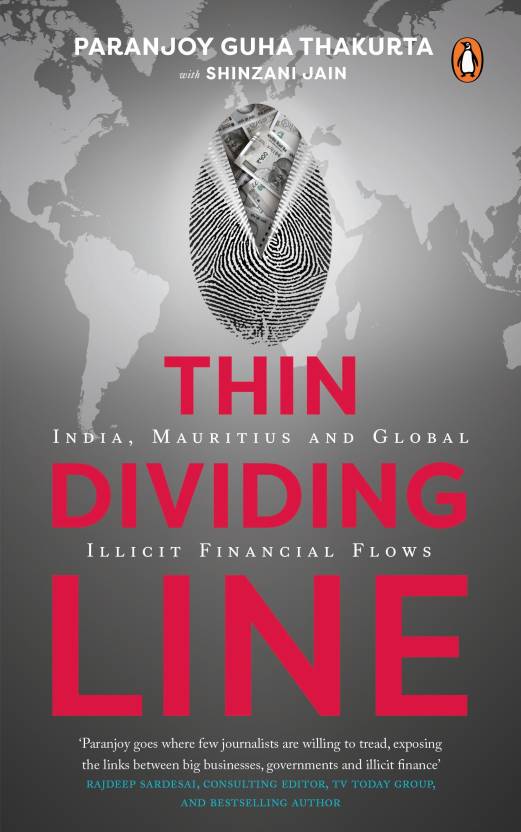A loss-making company controlled by India's richest man, Mukesh Ambani, who heads the country's biggest private corporate entity, Reliance Industries Limited, has successfully managed to reschedule repayments of its loans to banks. Reliance Gas Transportation Infrastructure Limited, the closely-held firm whose shares are not listed on stock exchanges, has a colourful and controverisal past.
According to a story broken by Dev Chatterjee in the Business Standard on June 12, this is the first time a company in the Reliance group led by Mukesh Ambani has sought and obtained rescheduling of loans extended to it by Indian public-sector banks.
RGTIL's losses for the financial year that ended on March 31, 2015, stood at Rs 436 crore on an income of Rs 1,357 crore. In the previous year, the company's losses were nearly eight times higher at Rs 3,403 crore on a slightly higher income of Rs 1,412 crore. The company's debt was above Rs 16,000 crore at the end of March.
RGTIL has stated that it had received a sanction from nationalised banks to repay the principal loan amount outstanding by 2030-’31 instead of 2019-’20. Such a rescheduling is considered most generous.
Closely held company
Why did this company seek and obtain a new schedule for repaying the loans it had received from a consortium of banks? And what is the role of this particular firm in the bigger affairs of RIL, India's biggest private corporate entity, and its associates?
RGTIL is a company in which Mukesh Ambani holds a personal stake is 42.5%. Being a closely-held private company, its accounts are not part of the financial statements that are disclosed by RIL, which is a widely-held company whose shares are listed on stock exchanges. Yet this company plays an important role in the activities of the wider business empire controlled by the Ambani family.
RGTIL owns and operates a nearly 1,400-kilometre-long natural gas transportation pipeline from Kakinada in Andhra Pradesh to Bharuch in Gujarat that passes through four states including Karnataka and Maharashtra.
The company's losses are apparently on account of a sharp fall in production from the D6 block in the Krishna-Godavari basin in the Bay of Bengal, where a company controlled by the Reliance group has been contracted by the government to explore and extract natural gas. The decline in gas output has, in turn, led to significant decline in the utilisation of the pipeline's capacity.
In 1999, when RIL obtained the rights to explore the D6 block, it was estimated that gas output would be in the region of 40 million metric standard cubic metres a day. This figure was subsequently doubled and the pipeline that was built to transport the gas assumed gas production would be 80 mmscmd.
These estimates seemed reasonable when in March 2010 gas production reached nearly 70 mmscmd and RIL crowed about its achievement. However, gas output started dipping thereafter.
Falling output
In 2010-’11, production averaged less than 56 mmscmd and in the following year, gas output dropped below 43 mmscmd. Worse was to follow. In 2012-’13, production shrunk to 26 mmscmd and by December 2014, the average output of gas from the KG-D6 block had come down to a meagre 10 mmscmd, an eighth of the amount had been envisaged.
Reliance group spokespersons claimed the fall in gas production was on account of "natural" and "unanticipated" factors, whereas others – including the Comptroller and Auditor General of India and a Parliamentary committee – were sceptical about their explanation.
They contended that output had been "deliberately" suppressed in anticipation of higher prices of gas which are administered by the government. RIL protested.
Over the last three years, the Ministry of Petroleum and Natural Gas has levied penalties on the contracting company led by RIL, disallowing it from recovering costs incurred to the extent of nearly $ 2.4 billion (or around Rs 15,000 crores at the prevailing exchange rate). The company again protested.
A number of petitions on these and related issues are currently under adjudication in the Supreme Court. In addition, arbitration proceedings are proceeding concurrently.
The drastic fall in gas production has not merely adversely affected the fortunes of RGTIL. Power plants which were set up to use the gas are operating way below their installed capacities. According to a December 2013 report of a Parliamentary committee, power projects with investments of Rs 40,000 crore are "stranded" because of non-availability of gas.
In March, the Union cabinet approved a plan to subsidise imported liquefied natural gas to help these stranded projects.
Intense battle
RGTIL was created in March 2003 as a 100% subsidiary of RIL. In August 2004, RGTIL was granted approval by the Ministry of Petroleum and Natural Gas to build a pipeline to transport gas from Kakinada to Bharuch.
Between November 2004 and June 2005, the Ambani brothers Mukesh and Anil fought a bitter battle in public over control of the assets of the businesses of the family.
On April 21, 2005, an unusual development took place. For a paltry sum of Rs 500,000, RGTIL was taken out of the ambit of RIL and converted into an "independent" company controlled entirely by Mukesh Ambani.
The way this was done presents a typical case study of how Ambani family members structure their personal assets, using a slew of companies with extremely complicated cross-holdings – that is, shares held by a clutch of corporate entities in one another – with loyal employees and associates acting as directors in these firms.
The story of RGTIL then took an interesting turn, The Union budget for 2009-’10, announced by Pranab Mukherjee, who was the finance minister at the time (and is now President of India) on July 6, 2009, inserted Section 35AD in the Income Tax Act, 1961, to allow 100% of the capital expenditure incurred on setting up and operating a natural gas or a crude oil pipeline as a tax deduction in the very first year of operation.
This was the only business of its kind in India in which the entire capital expenditure incurred was allowed to be treated as revenue expenditure in the first year of operation. The estimated benefit to RGTIL was a staggering Rs 20,000 crore.
Deal is investigated
Four years later, in 2013, a report was drafted by the Serious Fraud Investigation Office in the Ministry of Corporate Affairs investigating the manner in which firms in the Reliance group had sought to control a company which controlled the NewsX television channel.
The draft report, which was presented in the Supreme Court on November 11 that year by lawyer Prashant Bhushan as an annexure to a public interest litigation petition, alleged that there had been a "fraudulent" set of transactions linked to corporate entities controlled by lobbyist Niira Radia, a Mauritius-based associate of multinational investment firm New Silk Route (whose founders included Rajat Gupta and Raj Rajaratnam who were been found guilty of insider trading charges in the United States) and RGTIL.
The Serious Fraud Investigation Office draft report claims that the RIL chief quietly and without any disclosure "stripped RGTIL from RIL and converted into his personal property at a meagre price" through a "maze of private companies" that enabled India's richest man to "convert" a wholly-owned subsidiary of the country's largest private corporate entity into his "personal property" in a "classic manoeuvre".
RGTIL also figures among the firms involved in the so-called Biometrix case. In 2013, the Enforcement Directorate in the Ministry of Finance (which is responsible for enforcing the Foreign Exchange Management Act and the Prevention of Money Laundering Act) wrote to the Reserve Bank of India seeking its advice on the legality or otherwise of a loan of Rs 6,530.36 crore ($1.62 billion) by an overseas branch of ICICI Bank to a Singapore-based company called Biometrix Corporation that later returned to the country allegedly as foreign direct investment through the issuance of financial instruments in four Reliance group companies, including RGTIL.
The range of transactions relating to this company underscores its importance to the sprawling business empire of India's richest man.


